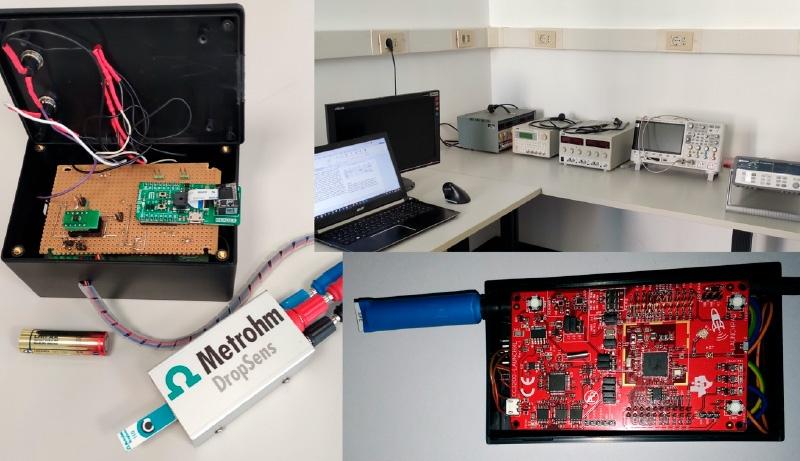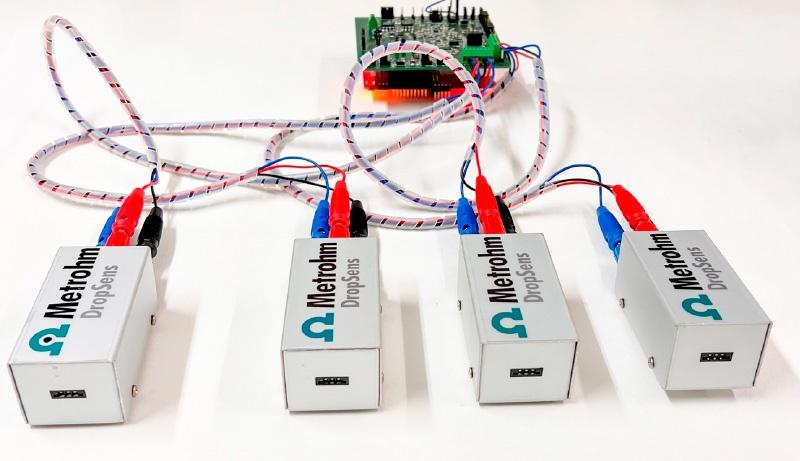Strengthening of the Italian Research Infrastructure for Metrology and Open Access Data in support to the Agrifood
UNIPR2 – Computer Science and Electronic Sensor Unit
(Reference person: Ilaria De Munari)
The Computer Science and Electronic Sensor Unit operates within the Department of Engineering and Architecture, Information Engineering section. The OU participates in the project with engineers having deep knowledge and relevant expertise in electronics and computer science. The group has experience in the design of devices and systems based on microcontrollers and FPGAs, in the development of analog interfaces, and in the study and development of innovative artificial intelligence and machine learning (ML) algorithms for multi-modal data processing. It has been involved in national and European projects, bearing also scientific coordination responsibilities in some of them. The group has experience in the design of sensors and sensor networks with particular attention to IoT systems based on different protocols. Recently, in close synergy with the researchers of the Analytical Smart Sensor Unit, portable IoT electrochemical smart biosensors for diagnostics have been developed. The group exhibits also relevant expertise in the design of integrated circuits (IC) for sensor interface, signal amplification, and analog-to-digital signal conversion. The experts in computer science have a widely-renewed experience in developing algorithms, architectures and complete systems for the processing of multi-modal data, including, but not limited to, images, videos, audio, and text. Their core expertise is related to studying and developing innovative machine learning algorithms mainly applied to pattern recognition, signal and image analysis problems.

Ilaria De Munari
Received the M.Sc. degree in electronic engineering and the Ph.D. degree in information technologies from the Parma University, Italy, in 1991 and 1995. She joined the Dept. of Engineering and Architecture, of Parma University as a Research Assistant in 1997, and she has been an Associate Professor since 2004. Her past research interests include the reliability of electronic devices and the design of electronic systems. In this framework, she was involved in several European projects. Her current research is focused on the design of digital systems based on microcontrollers and FPGA. In particular, she is dealing with the design of sensors for human activity recognition, electrochemical applications, and for the evaluation of battery state of charge. She has authored or co-authored more than 100 papers in technical journals or proceedings of international conferences.

Valentina Bianchi
Received the B.Sc. and M.Sc. degrees in electronic engineering and the Ph.D. degree in 2003, 2006, and 2010, respectively from the Department of Engineering and Architecture, University of Parma, Parma, Italy, where she is currently a Research Associate. She participated in several national and international projects. She has authored or co-authored over 50 papers in international journals or proceedings of conferences. Her current research interests include the design and validation of sensors for human activity recognition, sensors for electrochemical applications, and digital systems implemented on FPGAs, with a special focus on the design of hardware for machine learning algorithms and arithmetic circuits. She is an Associate Editor of the “IEEE Transactions on Instrumentation and Measurement” journal.

Andrea Boni
Received the M.Sc. degree in electronic engineering and the Ph.D. degree in information technologies from the University of Parma, Italy, in 1993 and 1997, respectively. Since 2002, he has been an Associate Professor of Electronics at the University of Parma, where he is responsible for the Analog IC Design group. He has authored more than 90 scientific papers and two US patents. His research interests include memory accelerators with analog in-memory computing, A/D converters, integrated sensor nodes, and sensor interface circuits. He was a Co-Founder of Silis S.r.l., a company involved in the design of analog integrated circuits. He has been in the Technical Committee of the IEEE Custom Integrated Circuits Conference. He is presently an associate editor of the IEEE Transactions on AgriFood Electronics and a member of the editorial board of MDPI Electronics.

Stefano Cagnoni
MEng and PhD, Biomedical Engineering, University of Florence. Visiting scientist at the Whitaker College Biomedical Imaging and Computation Laboratory at the Massachusetts Institute of Technology in 1994. Formerly Researcher (1997-2004) and currently Associate Professor at the University of Parma. His main research interests concern artificial intelligence and machine learning, with particular regard to evolutionary computation and its application to pattern recognition. He has published more than 180 papers. Current h-indices: 23 (Scopus), 30 (Google). Former Editor-in-chief of the "Journal of Artificial Evolution and Applications". Member of the editorial board of the journals "Evolutionary Computation" and "Genetic Programming and Evolvable Machines”. He has earned the “Evostar 2009 Award in recognition of the most outstanding contribution to Evolutionary Computation”.

Giulia Magnani
Works at the University of Parma as a Technologist, since November 2022, hired within the NPRR METROFOOD-IT project. She received her Bachelor’s Degree in Computer Science (2019) and, subsequently, her Master’s Degree in Computer Engineering (2021), both from the University of Parma. Among her main research interests are: Machine Learning techniques, which she learned to use in a few projects during her studies; Data analysis and processing techniques, examined during an internship at Sidel spa, Parma (2021) where she implemented a web tool for data collection and processing aimed at developing predictive maintenance tools; Web development, which she delved in during her internship and during multiple personal projects.







